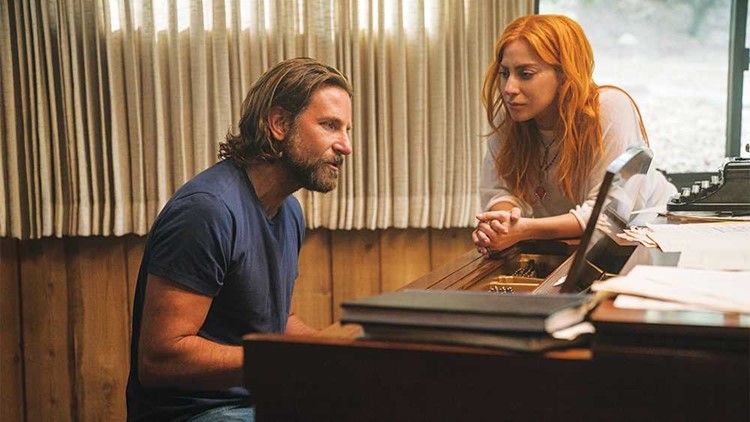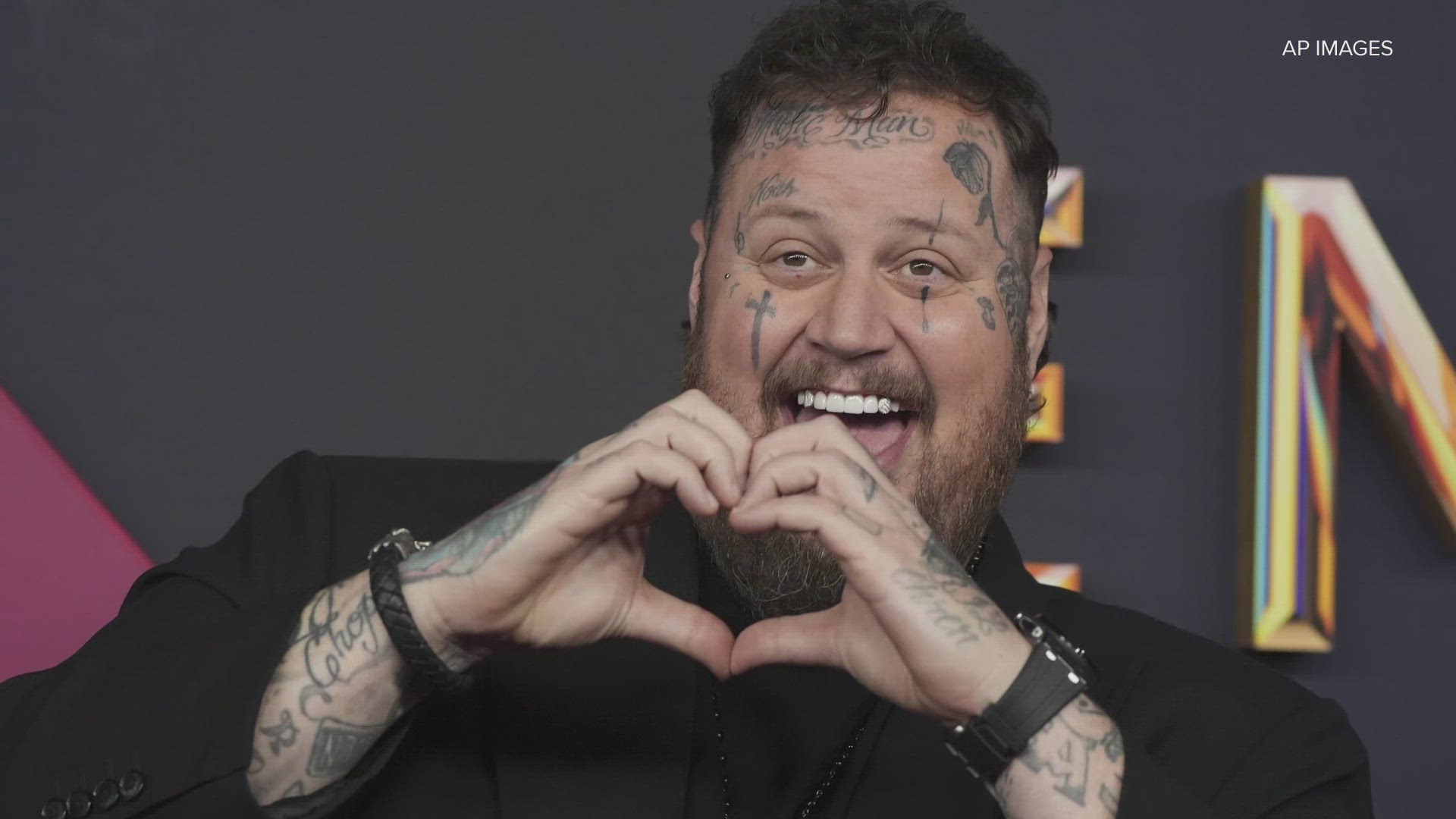There are many reasons to fall in love with Bradley Cooper's remake of A Star Is Born.
Namely, the fact that it doesn't feel like a remake at all, instead coming off an authentic piece of filmmaking that grew organically over the past four years in the actor's head. You forget the fact it was brought to the screens over 90 years ago.
The lavish production value is a thing of beauty, from the concert sequences all the way down to the intimate setup of dialogue-driven scenes. The performances are exemplary, not only from Cooper and Lady Gaga, but also from supporting players such as Sam Elliott, Andrew Dice Clay, and Dave Chappelle. The soundtrack kicks the tires during every scene, whether it's overlaying the headlining couple on the road or singing together on stage. There's something unique about a pair of actors working with a camera on a stage and giving an audience member watching months after the fact the feeling that it's a live show. Cooper and Gaga singing the songs live made it special.
The songwriting is a perfect orphan, lacking any real genre placing, instead bouncing between country and rock n' roll. You can tell Cooper worked meticulously with Lady Gaga, Jason Isbell, and Lukas Nelson to strike the right chord between whiskey-driven sorrow blues and luminous ballads for a film that sports a beautiful look to go with a dark heart. The pacing and editing are top notch, producing a quick dive into the life of Cooper's Jackson Maine and all its luster and self-torment before introducing Gaga's Ally, and expanding upon their relationship. You aren't left exhausted yet wanting more-or at least I did.
**SPOILER ALERT**
*I will discuss key parts of the film's third act, so if you haven't seen it and want to keep it fresh, stop here.
*FINAL WARNING: SPOILER ALERT*
All of those things are wonderful and turn "just another remake" into one of 2018's best movies. A crowning achievement for Cooper and Gaga. However, there's something else that I loved about this movie: the relentlessly accurate portrayal of addiction, substance abuse, and depression. How those three things can merge into an unsafe lane of inner demons and reckless decision-making for even the most talented people on the planet.
This is where I think Cooper went full-bodied bold with the film, taking events from his own past, mixing in some other flavors of sorrow, and creating a film that paid homage to the demons one can face when a messy childhood connects to a fast-moving career of stardom. How mistakes do indeed stack up on top of each other in a soul instead of merely deleting themselves from the human being's file, like a recycled bin on a computer.
When we first meet Maine, he is a train set to derail at any minute. He's taking large gulps of gin and swallowing 4-5 pills before taking the stage for a show. When he gets into his ride afterwards, more gin awaits. When he runs out, he is willing to go into a drag bar to get more alcohol. He's like a continuous drain for bad ideas to be poured into. The arrival of Ally into his life temporarily takes away the need for "some" of those vices, yet he does get drunk and drugged up on a routine basis during their relationship.
It's an authentic portrayal and observation of what some people call a disease and others simply label as a deadly addiction. As one character said to another in a movie once, being with someone like this is akin to being strapped to a bomb. At some point, it's going to explode. I appreciate the fact that Cooper didn't choose a less-dark ending for this film in order to appease the audience who won't understand the finale of this film.
After he enters rehab following a disastrous appearance at the Grammy Awards that damaged Ally's career, Maine tells her something incredibly revealing right before he gets out. He tells her that he is in rehab for her...and not for himself. That was a legitimate red flag right there that told a viewer all they needed to know about his fate. Eventually, he was going to be swallowed up by his addictions again, and ruin Ally's surging career and popularity.
In the film's climax, instead of going to see Ally perform at The Forum, Jackson hangs himself with a belt in the garage.
Now, one would think a blunt conversation with Ally's manager beforehand set up Jackson's final downfall, but I don't buy it. When he gets out of rehab, Jackson tells Bobby (Elliott) that he was the one who inspired him to sing in the first place. It's a quick resolution of decades of hurt between the two. Jackson is tying up loose ends. Later on, before Ally leaves for her show, he sits up and repeats a line that he said earlier in the film about wanting to get another look. All along, I think Jackson knew it was going to end this way. It was only a matter of how long he could fight it off.
In rehab, Jackson tells an instructor (Alias' own Ron Rifkin) that he tried to take his own life when he was almost 13 years old. Thirteen!! Why? He spent all his time on a secluded ranch in Arizona with his father, who was always drunk. Bobby referred to Jackson as their dad's drinking buddy, so imagine what they can do to a kid. He starts drinking before he's ten years old, doesn't go anywhere, and watches his troubled father die at a young age while his brother is out touring. Sometimes, nurture can go sideways and ruin a life. I think Jackson was cursed at a young age and never recovered. I also think he was depressed.
He never met his mother, who died at childbirth. We are talking about a kid who was perpetually stuck at 13 for years. Then, he became a huge star at 18 and sat on the roller coaster of fame until he was 43, where he was a drunk and drug addict. Long before he met the lovely Ally, Jackson was broken inside, a car that crashes no matter how good the steering is or how strong the engine is built. Bad tires on a constantly wet road.
Sometimes, you can't build a wicked concoction of addiction and depression. That's a cocktail that carries a strong record in 2018. Some critics called the suicide by hanging at the end a cop-out, but I disagree. It was a quiet and soulful tribute to doomed musicians like Chris Cornell and Chester Bennington. In other cases, not involving drugs and alcohol, it also took the life of Robin Williams and Anthony Bourdain. It's a real, tragic thing that I think Cooper recognized and wanted to share.
In my opinion, the Kris Kristofferson version, where his character gets in a car accident, is a cop-out. In the third film and second remake with Barbara Streisand, Kristofferson is jealous of her success, and his anguish ends in a car wreck. In the first two films, the lead male just walks into the ocean to drown. Cooper, making a bold stroke with this remake, wanted to be daring with Jackson's exit as well. He wanted to speak to the millions of families that have lost a loved one to addiction. He was firm yet fair.
It's this loyalty to a indomitable disease that gives A Star Is Born a staying power that haunts you long after the credits roll. I sat frozen in my seat as Cooper ruggedly belted out "Black Eyes" one more time, wondering about the red herrings in the film that pointed towards its end. Then, I realized it doesn't really matter. Sometimes, a bomb set to explode will do so no matter what.
It took two viewings for me to realize the provocative touch of Cooper's film. It took around five hours of watching Jackson and Ally sing their hearts out onstage while defending them off of it for me to realize why this movie sits atop the list of my favorites for the year. The raw emotion of the performances and skillful direction and writing coupled with the honesty and care for addiction make for a wholly unique and original cinematic experience. That's pretty good work for a remake no one asked for.
If you ask me, Cooper stands head and toes above every other candidate when it comes to the award shows. It does everything an Oscar winner demands a film to do...and then some.
Good luck, rest of 2018's film slate. You'll need it.



